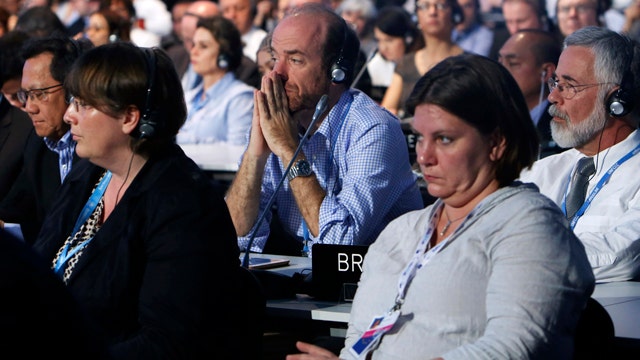In recent years, the existential threat posed by climate change has inundated global discussions, urging various faiths and philosophies to respond effectively to this unequivocal crisis. Within the Bahá’í framework, climate change is not merely an environmental issue but rather a profound manifestation of moral, social, and spiritual dimensions demanding urgent attention. The teachings of the Bahá’í Faith proffer a remarkable perspective on humanity’s collective responsibility to steward the Earth. This article delves into the Bahá’í teachings regarding climate change, particularly the salient perspectives that emerged during the pivotal discussions in Lima, known as the COP20 Conference.
The Bahá’í Faith underscores the interconnectedness of all forms of life, emphasizing the concept of unity in diversity. This principle articulates that our ecological plight necessitates a concerted effort transcending national, cultural, and ideological boundaries. It is pivotal to grasp that climate change is not solely a scientific phenomenon but also a spiritual and ethical crisis requiring a profound shift in human consciousness. The teachings of Bahá’u’lláh, the founder of the Bahá’í Faith, advocate for a universal approach to problem-solving—one that harmonizes material progression with spiritual development.
During the discussions in Lima, the forums highlighted the cry for innovation and change within the realms of policy, industry, and personal responsibility. The Bahá’í perspective resonates with the urgency that intergovernmental negotiations and civil society must now embrace. The UN’s call for ambitious climate agendas echoes the Bahá’í vision for a sustainable future wherein justice and equity prevail. It is essential to recognize that the solutions surface not only in technological advancements but also in the metamorphosis of human behavior toward the environment.
One pertinent teaching emphasizes the need to defend the rights of the most vulnerable populations disproportionately affected by climate change. Bahá’í teachings stress that justice is a cornerstone of sustainable development. In Lima, discussions revolved around equitable distributions of resources and opportunities, reinforcing the necessity to recognize those in marginalized communities. The Bahá’í emphasis on social justice becomes an imperative catalyst for ensuring that climate action strategies do not exacerbate existing inequalities.
Moreover, the concept of stewardship plays a critical role in the Bahá’í teachings regarding environmental protection. Humanity is viewed as caretakers of the planet, charged with the responsibility to nurture and safeguard the Earth’s ecosystems. This doctrine compels individuals and communities to devise collective solutions reflecting a balance between economic growth and environmental sustainability. The Lima climate talks effectively illuminated avenues for fostering collaborations that embrace this fundamental quality of stewardship.
Another aspect driving the Bahá’í response to climate change encompasses the intrinsic ties linking spiritual practices to environmental consciousness. Bahá’í communities are urged to engage in reflective practices that instill gratitude for creation and reverence for all living entities. Such an approach not only enhances individual awareness but also cultivates communal resilience against the escalating threats posed by climate change. Embracing a worldview that honors nature elevates our shared responsibility towards the nurturing of the planet.
Importantly, the Bahá’í teachings advocate for a systematic approach to education that encompasses environmental ethics. Educational institutions within the Bahá’í framework are charged with equipping learners with the knowledge necessary to comprehend and address ecological challenges. The Lima meetings emphasized the critical importance of incorporating environmental sustainability into educational curricula, bridging the gap between scientific understanding and spiritual insight.
The Lima climate discussions reaffirmed the role of youth as pivotal agents of change in confronting climate challenges. Bahá’í teachings hold the youth in high esteem as torchbearers of hope and transformation. Their engagement in sustainable practices and advocacy initiatives is indispensable. As the custodians of the future, the younger generation can galvanize momentum, encouraging systemic shifts in both attitudes and policies surrounding climate action.
A significant takeaway from the Lima talks involved acknowledging the moral imperative that climate change embodies. The Bahá’í perspective elucidates that neglecting this crisis results in a breach of ethical responsibility towards future generations. The intergenerational equity intrinsic to Bahá’í thought speaks volumes to the urgency of deliberate action. A discourse formed around climate change, devoid of ethical contemplation, is fundamentally deficient. The Lima Conference illuminated the essential nature of integrating ethical considerations into climate negotiations.
Lastly, it is crucial to appreciate that the Bahá’í teachings advocate for a reinvigorated vision of humanity’s relationship with nature. Rather than perceiving the environment merely as a resource to be exploited, we are encouraged to view it as a dynamic and sacred entity. This reconceptualization of our interactions with the Earth enhances our disposition towards compassion, stewardship, and conscientious living. As climate change looms menacingly ahead, a shift in perspective, informed by the Bahá’í teachings, holds the promise of illuminating a path towards healing our planet and fostering enduring peace among its inhabitants.
In conclusion, the Bahá’í teachings provide a rich tapestry of insights for addressing climate change—uniting spiritual understanding with urgent action. The lessons derived from the Lima climate talks serve to remind us that transforming our environmental realities is not solely a policy challenge but a moral imperative calling for collective action rooted in justice, equity, and compassion. By embracing these teachings, humanity can embark on a transformative journey toward a more harmonious existence with our precious planet.
